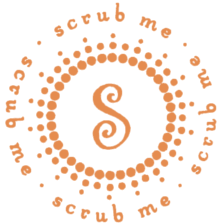Retinol Alternatives
In the skincare realm retinol is considered to be a superhero ingredient when it comes to anti-aging and acne. This vitamin A-rich ingredient increases cell turnover helping to both unclog pores in acneic skin and renew collagen and elastin in aging skin. Retinol is pretty amazing at reducing breakouts and fading fine lines and wrinkles. While retinol products are effective they can also be problematic for some skin types. Retinol is known to be sensitizing and irritating to the skin when used too often or in a dosage that’s too high for your certain skin type. Some cannot handle a retinol product without showing signs of sensitivity or irritation and therefore won’t get the desired results. This ingredient also causes photosensitivity meaning skin is more sensitive to sun and UV rays; this is why retinol or Retin-A should only be used in the PM.
scrub me secret: I myself cannot use retinol products in my own skincare routine. My skin has a slight allergy to any kind of retinol or vitamin A product where it becomes very bumpy and slightly itchy for days after use. This means I’ve had to find other ways to anti-age and increase cell turnover for myself.
So while retinol is a great addition to some of your skincare routines there are others that will fare better without it. What are the alternatives for those of us who aren’t using retinol? Are we still able to achieve the same skin-smoothing, cell-stimulating, and pore-clearing results in a different way? Here are some of the best alternatives to retinol I have found.
Bakuchiol:
(BA-KOO-CHI-ALL)
Psoralea Corylifolia plant
This ingredient derived from the psoralea corylifolia plant is not a new item but it has gained a lot of popularity in skincare recently. This plant-based ingredient was first used in traditional Chinese medicine decades ago for treating diseases and preventing bone loss. Today, you can find Bakuchiol in anti-aging skincare products. It is said to mimic the anti-aging and tone evening effects of retinol. This ingredient can increase the production of collagen and elastin, making skin feel firmer and smooth lines/wrinkles. It has also shown to have effectiveness when brightening pigment damage. What makes this ingredient really special is it does not have the same photo-sensitizing or skin-irritating effects as retinol would. This means you can use this product in the AM without having to worry about sun exposure. This is the perfect ingredient to try if retinol is making your skin feel too sensitive or if you’re worried about UV sensitivity. I am currently trying the AO reverse longitude PM serum with bakuchiol to get the skin smoothing and anti-aging benefits.
scrub me secret: unlike retinol, products with bakuchiol are recommended to use both AM/PM every day. You will see your best results when used consistently morning and night.
Resveratrol:
(REZ-VERA-TRALL)
Another effective age-fighting ingredient is resveratrol. Serums with resveratrol repair protein cells (collagen and elastin) and fight free radicals that are known to damage skin cells. This can give you the skin plumping and wrinkle diminishing effects you’re looking for. Resveratrol is also helpful in brightening dull skin and minimizing redness or ruddy looking skin. This ingredient is helpful in repairing and protecting skin but does not aid in cell turnover. This means it’s not as helpful when it comes to unclogging pores or clearing breakouts. Resveratrol works best for targeting aging skin and achieving a more even skin tone. I myself have tried the PCA resveratrol serum and found it effective in reducing redness; plus my skin felt firmer after a little over a month of daily use.
scrub me secret: When paired with oil clearing products and/or a good chemical exfoliant, resveratrol can be really helpful in treating acneic skin. Your oil clearing products and exfoliant can take care of cell turnover + unclogging pores while the resveratrol protects the skin’s sensitive barrier and works to reduce overall redness.
AHA/BHA:
Alpha-hydroxy acid and beta-hydroxy acid combination (AHA/BHA) are popular in skincare because these acids work together to both increase cell turnover and control oils. This is a great alternative to retinol for those looking for a chemical exfoliation that unclogs pores, targets breakouts, and takes away dead/dull cells. Similar to retinol, an AHA/BHA product should only be used in your nighttime skincare routine. These products are not a strong as a retinol serum but less irritating for the skin. Lactic acid and glycolic acid are popular alpha hydroxy acids; these are what do the exfoliating work and increase cell turnover. Salicylic acid is the beta-hydroxy acid you will see in these AHA/BHA serums and tonics; this is what aids in controlling oils. For skin types that cannot tolerate retinol, I suggest trying an AHA/BHA serum. I really like the SkinCeuticals blemish/age defense serum and Herbivore PRISM AHA/BHA serum. Your skin’s resiliency or sensitivity will dictate how many nights a week a serum like this is used; I always suggest my clients start out using it 2 nights a week and increase as they feel comfortable. Sensitive skin types are usually best off using a product like this 2-3x a week while more resilient skin types can incorporate it into their skincare routine 4-6 nights a week. Consult your esthetician if you are unsure.
Retinol is so popular and effective for so many people that it sometimes feels like there is no way around using it. You always have options when it comes to customizing your skincare routine! Skincare is not one size fits all so what works for your friends and family might not necessarily be the best thing for your skin. If a product seems like it’s irritating, sensitizing, or not giving you the results you desire, do your research and find out what else is out there that will help you achieve your ultimate skincare goals. With these alternatives, you will no longer need to worry if you’re not able to incorporate a retinol into your skincare routine.



